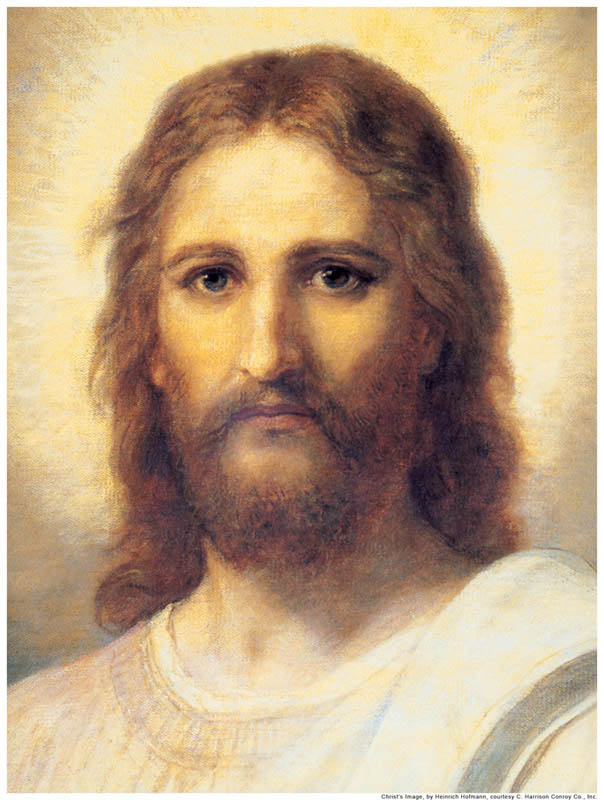Jehovah
Contents
Jewish Usage and Biblical Translation:
In the Hebrew Bible, the name of the God of the Old Testament is written with the consonants YHWH. The vowels originally used (and thus the original pronunciation of the divine name) is unknown. It is known that this name is in some way related to the Hebrew verb to be because of the pun made in Exodus 3:14 to the Hebrew ehyeh, signifying I Am [1] Unfortunately the exact conjugation of the to be verb that leads to YHWY is unknown. Traditionally this name has been pronounced Jehovah in English, although the Hebrew pronunciation Yahweh has been proposed. This traditional pronunciation is based on the hypothetical conjugation for the divine name as the self-existant one, or The Eternal by conjugating to be as always existing/being. This pronunciation and etymology is purely speculative however, and Coptic evidence from the time when the name was still pronounced points to a completely different pronunciation of Yahoh, with no known grammatical interpretation.The Jews did anciently and do today avoid uttering the name of Jehovah out of reverence for the Lord. They use the substitutes, Adonai, signifying The Lord, or HaShem, which means the Name. This led the King James translators to use the following tradition when translating the divine name:
YHWH LORD YH YHWH LORD JEHOVAH Adoni YHWH Lord GOD YHWH Elohim LORD God Elohim, Eloah, or El God
It should be pointed out that in the Hebrew Old Testament as it stands today, the term Elohim was not used as the name of a separate individual. Rather it is simply the Hebrew word used to mean the generic term god and sometimes as an adjective meaning divine. This term is sometimes used for YHWH, as the God (Elohim) of the Old Testament (See Genesis 2 where it is used repeatedly to describe Jehovah), or for God the Father, or even to describe Pagan gods (See Joshua 24:2), sometimes for a divine (or mighty) wind, and sometimes even to describe the Israelite King as a divinely mandated ruler and type of Jesus Christ, the true divine king (see Elohim).
In LDS Usage:
The name Jehovah is today used to represent the premortal Jesus Christ who came to earth as a son of Mary. The Apostle Paul taught that Christ was the Jehovah of the Old Testament (Exodus 17: 6; 1 Corinthians 10: 1-4). Moroni also called Christ Jehovah (Moroni 10: 34).
Today the term Elohim is used almost exclusively as a name for God the Father, although this is not the way it is used in the Old Testament as we now have it. It seems as if this LDS traditional usage began with the Endowment when Joseph Smith needed a distinct name for God the Father and chose to use the term Elohim to refer to Him. Although this name is appropriate for God the Father, it is important to not retroactively apply this usage to the Old Testament (For example, see Genesis 2:9 where the term Elohim is applied to Jehovah).
Although the Old Testament as we have it today does not use the term Elohim as the name of a distinct individual from Jehovah, Margaret Barker, a non-LDS Biblical scholar has proposed that the earliest Biblical traditions differentiated between El (the Father) and Jehovah (the Son)[2]. If she is correct, then the lack of distinction between Elohim and Jehovah evident in the Old Testament as it stands today is a deviation from an earlier tradition which matches with modern LDS usage.
Christ is Jehovah, the God of the Old Testament:
Modern revelation has revealed that Jesus Christ is Jehovah, the God of the Old Testament. "This truth is one of the most misunderstood doctrines in the history of the world, despite the fact that the Old Testament and the other Standard Works are filled with evidence to support it." [3]
Christ told the Jews..."Before Abraham was, I Am" (John 8:58).
It says in the Old Testament, "Thus saith the LORD the King of Israel, and his redeemer the LORD of hosts; I am the first, and I am the last; and beside me there is no God" (Isaiah 44:6). And it says in the New Testament, "I am Alpha and Omega, the beginning and the ending, saith the Lord, which is, and which was, and which is to come, the Almighty" (Revelation 1:8).
See also Jesus Christ and Plan of Salvation.
